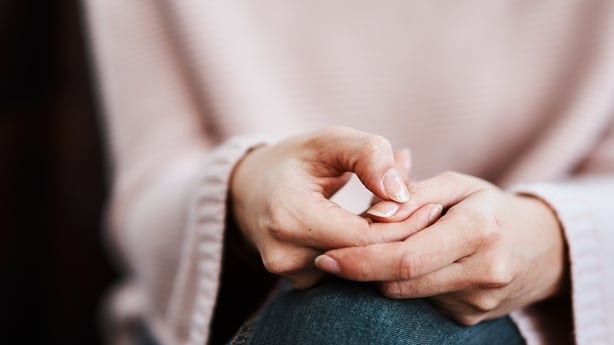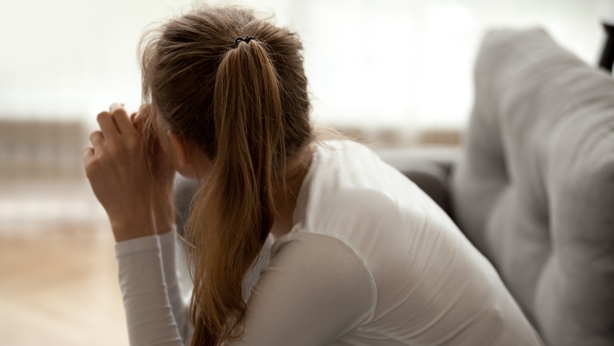Sarah Benson, CEO of Women's Aid, joined Claire Byrne on RTÉ Radio 1 to discuss a recent increase in calls that she believes is linked to the cost-of-living crisis. Listen back above.
Women's Aid, the charity that offers support to women in domestic abuse situations, says it has noticed an increase in calls since the cost-of-living crisis began.
Claire began the discussion by asking Benson about the kind of things women are saying when calling the helpline.
"What we are hearing is increased reports of, what we refer to as, economic abuse," says Benson. "That's always a very potent tactic used in domestic abuse. You define domestic abuse as a pattern of behaviours that may include physical, emotional, psychological, sexual abuse - usually a combination of some or all of those.
"Economic abuse is where money, access to money, access to goods, access to other resources like heat, light are used and leveraged in a coercive and controlling way."

Benson explains that economic abuse is a "powerful tactic" as it can cause suffering to women still in abusive relationships as well as those who are post-separation.
"If you don't have access to money and if you don't have access to means, your options, your choices, and your decisions are reduced proportionately. That can be everything from women who are maybe in work but don't have access to their own salaries - the salary is controlled by their abusive partner - or where they may be persuaded or coerced into giving up work which makes them financially dependent."
Ultimately, Benson says that economic abuse can be used as a tool to "degrade, humiliate, and control". Worryingly a rise in calls to Women's Aid has been connected to the cost-of-living crisis.
According to Benson, women calling in have told stories of having to negotiate with their abusive partners for enough money to buy basic things such as sanitary products.
Since the recent rise in heating costs, women have reported that abusive partners are only heating the rooms that they are in, leaving the rest of the home to run cold.
Controlling how much fuel is in the car is also a tactic used to hinder how far the woman can go and limits how many journeys she can take.

Praising the thousands of women that Women's Aid speaks to every year as being "ingenious survivors", Bensons says that leaving an abusive relationship can be complicated, especially if children are involved.
"Where economic abuse shows up the most is where there is nonpayment of maintenance, even where it's court ordered, and particularly at this time of the year with Christmas coming, those additional financial pressures and expectations of little [ones], that's used to leverage [situations]."
Using Christmas day as an example, Benson says abusers will sometimes withhold money, causing huge stress and concern for women trying to put food on the table for their children, only to show up on Christmas morning with extravagant and expensive gifts that are only from him.
Although Women's Aid will remain open 24/7 over the Christmas holidays - and have referral numbers for heterosexual men amd those in LGBTQ+ community that are in abusive relationships - Benson says that people should be mindful of their loved ones, particularly over the holidays.
"Just be mindful and vigilant of your loved ones. If you think they are having a tough time, it is the opportunity just to reach out and say you're there, ask how they are. It can be an opportunity to start a conversation which could be really transformative for somebody who needs a bit of support."
If any of these issues affect you, and you need to talk to someone, you can reach Women's Aid at 1800 341 900 or find their website here.
If you have been affected by issues raised in this story, please visit: www.rte.ie/helplines.

